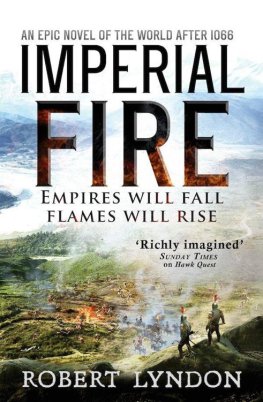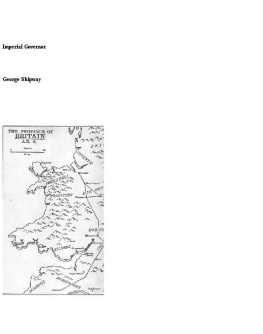IMPERIAL FEDERATION
{ii}
This Edition is intended for circulation only in India and the
British Colonies
{iii}
Macmillan's Colonial Library
IMPERIAL FEDERATION
THE PROBLEM OF NATIONAL UNITY
BY
GEORGE R. PARKIN, M.A.
WITH MAP
London
MACMILLAN AND CO.
AND NEW YORK
1892
No. 143
{iv}
'I tell you that when you study English history you study not the past of England only, but her future. It is the welfare of your country, it is your whole interest as citizens that is in question while you study history. How it is so I illustrate by putting before you this subject of the Expansion of England. I show you that there is a vast question ripening for decision, upon which almost the whole future of our country depends. In magnitude this question far surpasses all other questions which you can ever have to discuss in political life.'
PROFESSOR J. R. SEELEY.
OXFORD: HORACE HART, PRINTER TO THE UNIVERSITY
{v}
PREFACE
THIS book has been written at the request of many friends who think that a useful purpose will be served by putting the facts and arguments which it embodies into a connected form, where they will be easily accessible to the ordinary reader, and where either their fallacies may be exposed or their truth find a wider recognition. In most of the chief centres of the British world both at home and abroad I have found men of all classes, and not seldom large masses of men, who agreed on the whole with the line of thought which I here try to follow; agreed, too, with an intensity of belief and a warmth of enthusiasm which are, I think, rarely found except in connection with great and true causes. This concurrence of other minds has deepened the profound conviction which I have long felt that the completion of a closer and permanent political unity between the British communities scattered throughout the world should be a first aim of national statesmanship, and might {vi} become, if its advantages were clearly understood, a supreme object of popular desire.
It is essentially a subject for full and free discussion. Permanent national unity for British people can only be based on an agreement of opinion among at least the larger self-governing communities that the union is for the common good. That there should be an absolute unanimity of consenting opinion among the populations of the communities concerned we have no reason to hope. It has never occurred in any large national consolidation hitherto, and it is not likely to do so now. The continued unity of the Empire is a political question involving immense issues, and divergent opinions may be assumed from the start. Indeed, it becomes more evident from day to day, to those who watch carefully the current of events, that the end can only be gainedas great ends have ever been gainedafter a severe struggle between contending forms of thought. The provincialism which has uniformly resisted large national organization; the pessimism which sees danger in every new form of political evolution; the repugnance to change in an old country with forms of government more or less fixed; the crudeness of political thought and want of national perspective in young communities; the ignorance which begets inertia: all these exist and must be combated. In this struggle the better cause, the strongest arguments, the deepest convictions, the most {vii} strenuous moulders of public opinion, will win. Mere circumstances will never shape themselves for the required solution. A policy of drift will never result in united strength. Growth may be an unconscious processorganization can only be the result of a conscious effort. No thinking man today would wish to see the American Republic resolved into its original sovereign states, Germany into its kingdoms, small principalities, and duchies; Canada into its distinct provinces; Italy into its cities. Yet none of these would now be what they are had their fortunes been left to the drift of circumstances alone. Their history proves that the ideals of the clearest minds, backed up by intense convictions and resolute effort, are essential to the attainment of the highest political organization. Circumstances or the course of events may thwart human effort or favour it, but they can never take its place as a complete substitute.
The further consolidation of the Empire depends in great measure upon the answer given to two questions. Is it for the advantage of the different communities that they should remain together? and, granting an affirmative answer to this, does the problem of further unification on a mutually satisfactory basis present difficulties which transcend the resources of British statesmanship?
These questions roughly indicate the line of enquiry which I wish to follow. Behind them lies an issue {viii} which British people throughout the world will soon be forced to recognize as infinitely surpassing in momentous significance any upon which their political thought and energy are now being spent. We may not unreasonably believe that the movements at present going on in the mother-land and the colonies are only supplying us with the political formulae required for grappling with the higher national problem.
It seems like sheer political blindness not to perceive that in different parts of the Empire forces are now actively at work which may at any moment precipitate a decision of this great question; movements in progress which, it seems safe to say, must of necessity lead up to a decision within a time measured at the very most by one or two decades.
Nations take long to grow, but there are periods when, as in the long delayed flowering of certain plants, or in the crystallization of chemical solutions, new forms are taken with extreme rapidity. There are the strongest reasons for believing that the British nation has such a period immediately before it. The necessity for the creation of a body of sound public opinion upon the relations to each other of the various parts of the Empire is therefore urgent. In stating the case for British Unity I have constantly found myself merely linking together arguments already used by thinkers in many parts of the Empire. {ix} Any apology on my part for thus making use of other men's thoughts, is unnecessary. Earnest believers in a great cause only wish that the grounds of their belief should be made known as widely as possible.
No one can be more conscious than myself of the incompleteness of the statement which I have tried to make. But even a partial study of a great subject may serve a useful purpose. If what is here said furnish to the advocates of National Unity some texts upon which they may enlarge and improve, if it provoke that honest criticism which leads to a firmer grasp of truth, I shall be more than satisfied.
{x}
{xi}
CONTENTS
CHAPTER I. PAGE INTRODUCTION 1 CHAPTER II FEDERATION 31 CHAPTER. III DEFENCE 59 CHAPTER IV. THE UNITED KINGDOM 103 CHAPTER V. CANADA 115 CHAPTER VI. FRENCH CANADA 153 CHAPTER VII. MR. GOLDWIN SMITH 163 CHAPTER VIII. AUSTRALIA. TASMANIA. NEW ZEALAND..192 {xii} CHAPTER IX. PAGE SOUTH AFRICA. THE WEST INDIES 232 CHAPTER X. INDIA. 243 CHAPTER XI. AN AMERICAN VIEW 253 CHAPTER XII. FINANCE 271 CHAPTER XIII. TRADE AND FISCAL POLICY 278 CHAPTER XIV. PLANS. CONCLUSION 296 MAP Commercial and Strategic Chart of the British Empire, on Mercator's Projection ..End of book










